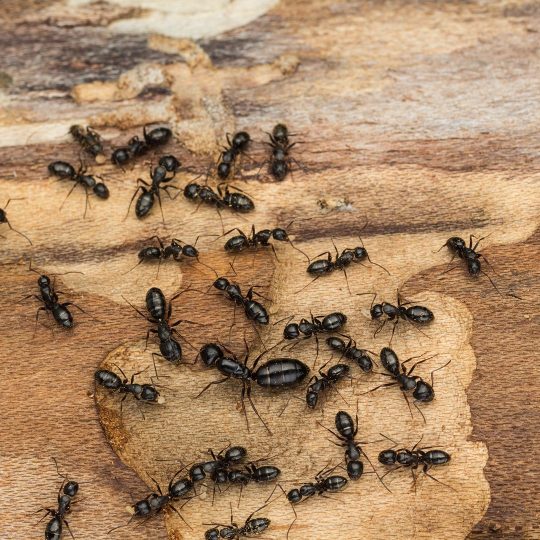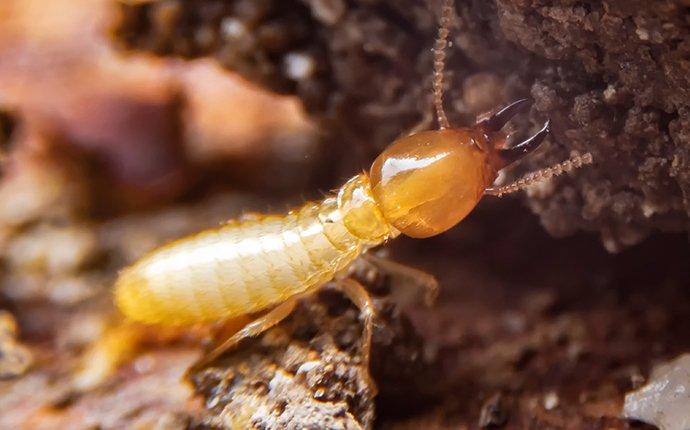Top-Rated Termite Control Services: Make Sure Long-Term Security for Your Home
Wiki Article
Ecological Influence of Insect Control: Harmonizing Performance With Sustainability
The ecological impact of pest control is a crucial problem that calls for a fragile balance between accomplishing performance in ensuring and taking care of pests sustainability of our ecological communities. From the usage of hazardous chemicals that leak into our dirt and water to the unintended consequences on non-target species, the repercussions of traditional pest control methods are significant.Dangerous Chemicals in Bug Control
The application of unsafe chemicals in insect control presents considerable ecological and health and wellness dangers that warrant careful consideration and mitigation techniques. Insecticides, herbicides, and pesticides are frequently utilized to get rid of parasites, yet their prevalent application can cause unexpected consequences. These chemicals can contaminate soil, water sources, and the air, affecting not just the targeted insects however likewise helpful bugs, wildlife, and human beings.
To attend to these threats, incorporated bug monitoring (IPM) strategies are being promoted as a much more lasting option. IPM includes a combination of methods such as biological control, environment control, and the targeted use pesticides as a last hope (ant control mathews nc). By adopting an alternative technique to pest control, we can reduce the environmental and wellness effects associated with damaging chemicals while efficiently managing pest populaces
Influence On Non-Target Species
Considering the unintended consequences of parasite control techniques, the effect on non-target species is a critical aspect that requires thorough analysis. While insect control measures intend to target particular insects, various other organisms in the community might be unintentionally affected. Non-target varieties, including valuable insects, birds, creatures, and also plants, can endure straight or indirect injury from chemical applications or organic control techniques.Pesticides created to deal with a certain bug pest might harm pollinators like or natural killers such as ladybugs. Biological control representatives, if not species-specific, can pose risks to unintentional targets, interfering with the eco-friendly equilibrium.
To alleviate the effect on non-target varieties, integrated insect administration (IPM) techniques that stress a holistic approach to pest control are suggested. These techniques focus on the use of eco-friendly methods, lessening injury to helpful microorganisms while properly taking care of pest populaces. Carrying out extensive danger evaluations and keeping an eye on the results of insect control efforts are important action in protecting non-target types and promoting total ecosystem health.
Dirt and Water Contamination
Unexpected ecological repercussions of parasite control methods prolong past influencing non-target species, with significant implications for soil and water contamination - ant control. Pesticides, herbicides, and chemical fertilizers utilized in insect control can leach right into the dirt and infect groundwater, presenting a threat to both terrestrial and marine ecosystems.Water contamination is another important problem linked with parasite control practices. To alleviate soil and water contamination from pest control tasks, integrated bug monitoring techniques that focus on sustainability and lessen chemical inputs are essential.
Air Contamination From Pesticide Usage
Direct exposure to airborne pesticides throughout farming applications positions i loved this a substantial worry for air pollution control measures. They can volatilize into the air and kind unstable natural substances (VOCs) and other airborne toxins when pesticides are sprayed onto plants - termite control. These chemicals can add to the formation of ground-level ozone, a significant element of smog that can have detrimental results on human health, crop productivity, and general air quality. In addition, pesticide drift, where pesticides are brought by the wind to unexpected areas, can cause the contamination of nearby ecological communities and water bodies.
Techniques for Lasting Pest Control
In the world of farming techniques, implementing sustainable parasite control methods is extremely important for maintaining environmental balance and securing plant returns. Sustainable insect control highlights making use of eco-friendly methods to manage insect populaces properly while minimizing harm to non-target organisms and ecological communities. Integrated Parasite Management (IPM) is a widely embraced technique that incorporates organic, social, physical, and chemical control methods to achieve long-term insect administration remedies.Crop turning and diversification are also reliable methods to disrupt pest life cycles and develop much less beneficial problems for parasites to flourish. Inevitably, by integrating these lasting parasite control approaches, farmers can achieve a balance between pest monitoring performance and environmental stewardship.
Final Thought
Finally, the environmental effect of parasite control techniques should be thoroughly taken into consideration to balance efficiency with sustainability. Dangerous chemicals used in insect control can result in dirt and water contamination, air pollution, and harm non-target species - ant control services. It is critical to carry out lasting insect control approaches to reduce these unfavorable effects on the atmosphere and advertise a much healthier community for future generationsBy adopting an alternative technique to pest control, we can minimize the environmental and health and wellness effects linked with hazardous chemicals while efficiently handling pest populaces.

To minimize the air pollution created by pesticide usage, it is vital to take on integrated parasite administration techniques that focus on the use of non-chemical bug control methods, such as crop turning, natural predators, and immune plant ranges. Sustainable pest control stresses the use of ecologically pleasant techniques to manage pest populaces successfully while reducing injury to non-target microorganisms and environments. Integrated Pest Administration (IPM) is an extensively adopted technique that incorporates biological, cultural, physical, and chemical control approaches to achieve long-lasting pest administration remedies.
Report this wiki page